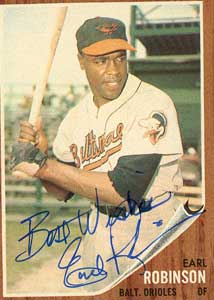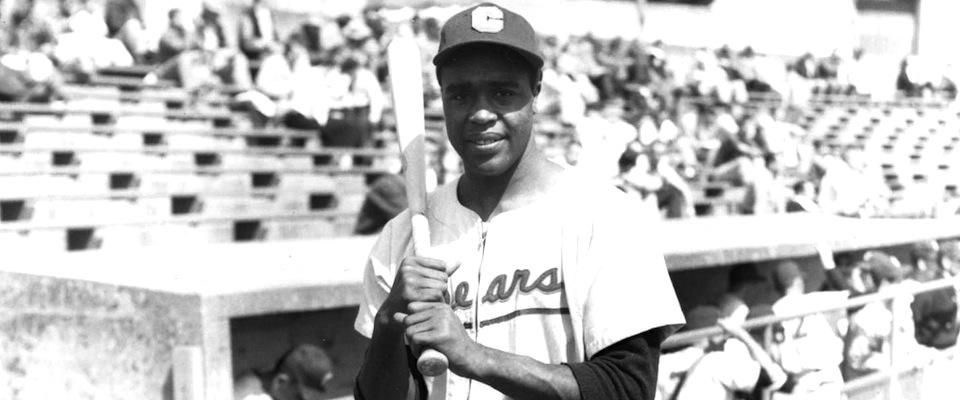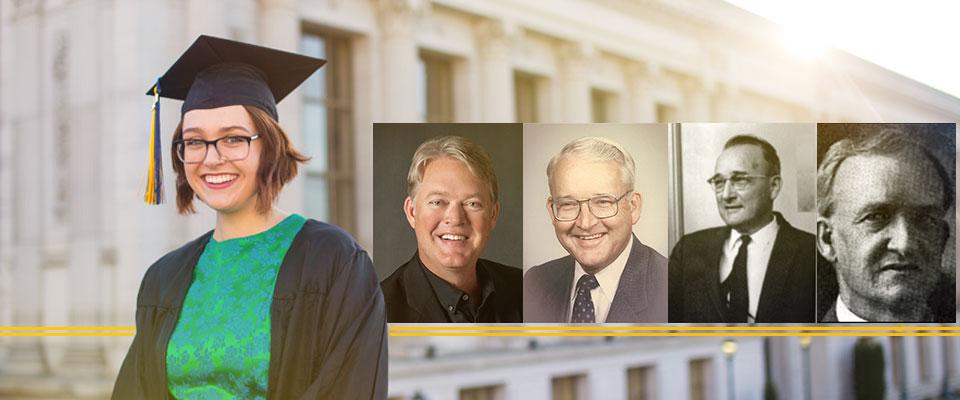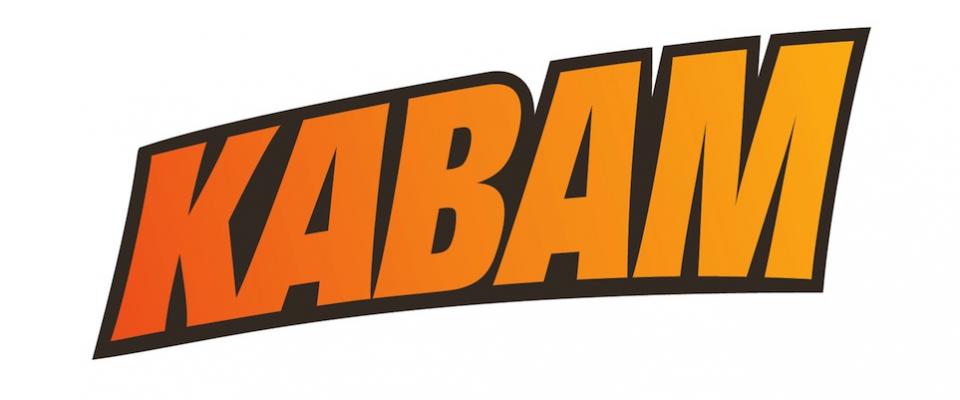Update: A memorial service for Earl Robinson, who died on Independence Day from complications of congestive heart failure, was held last Friday, July 25, at the site he selected before his death: the Cal Alumni House. The attendees, numbering in the hundreds, used up all the available seats and standing room, finally spilling out onto the Alumni House patio. Like Winston Churchill, Robinson arranged every aspect of his own memorial, including the speakers—Phil Chenier and Ansley Truitt, whom he coached on the Cal freshman basketball team in 1969; John Ricksen, his teammate on the Cal basketball team: and Pete Domoto, Robbie’s best friend since childhood and a guard on the 1958 Cal football team, the last Golden Bear squad to go to the Rose Bowl. Riksen was concerned he would be too emotional to get through his speech, so he wrote it down for the memorial booklet, instead. Robbie also chose longtime Oakland Tribune sports columnist Dave Newhouse to write his obituary and “I Believe I Can Fly” by R. Kelly as the music to be played at the service. Following the scheduled speakers, several members of the audience took the microphone and recounted their own experiences of Robinson’s kindness and generosity. Finally, the Straw Hat Marching Band arrived and played “Big C” and “Fight For California,” a tribute to Robbie’s stint as head yell leader during football season. Then everyone repaired to the Alumni House patio and munched turkey sandwiches—his favorite—and told stories. “It was as much him saying goodbye to us as us saying goodbye to him,” said one attendee. Robinson’s ashes were interred the following day next to his mother at Rolling Hills Memorial Park in Richmond.
The basketball teams that played for Coach Pete Newell at Cal in the late ’50s were known for having each other’s back. And, apparently, that hasn’t changed.
Last fall, point guard Earl Robinson, who starred on both the basketball and baseball teams—and later went on to play baseball for the Dodgers and Orioles—was diagnosed with end-stage heart failure, and his Medicare hospice coverage has run out. This left Robinson and his wife Wilma no way to pay his medical bills and living expenses.
That’s when his old teammates swung into action. Pete Domoto, Robinson’s best friend since they played together at Berkeley High—and, incidentally, a guard on the last UC Berkeley football team to go to the Rose Bowl—called Joe Kapp, the quarterback of that Rose Bowl team (who also played with Robinson on the basketball team), and said, “We’ve got to do something to help Robbie.” (It’s worth noting the racial mix, a rarity in college sports in that era: Domoto is Japanese American, Kapp Mexican American, Robinson African American.)
They started by contacting former Dodgers owner Peter O’Malley, who responded with a sizable private contribution, enough to cover Robinson’s expenses for a month. Major League Baseball’s Baseball Assistance Team—BAT, for short—kicked in with enough to pay for three more months. And Robinson’s teammates are coming through big time. As of today (April 14) they have raised enough to cover another three months, and they vow to keep at it for as long as necessary.
This comes as no surprise to their former assistant coach, Rene Herrerias, Newell’s right-hand man and successor as head coach.
“I’ve never seen a team as close as that team,” he says. “They all helped each other. They even had a secret language. For example, ‘Tabroot’ meant ‘Look out for the backdoor.’ It makes me proud that they’re still looking out for each other.”
His teammates say it’s just the right sort of payback.
“Robbie was like our older brother,” says Kapp. “He was very, very helpful to us younger guys. That’s probably why, in his time of need now, the players are rising up and supporting him.”
Forward Ned Averbuck says, “It all goes back to Pete. He delegated a lot to the seniors. They did all the recruiting, and he also gave them responsibilities during the season. If he felt a certain guy needed help, he had the seniors do it. And Robbie was his archetypal senior.”
Guard Earl Schulz adds, “All the seniors adopted us, and that was Pete’s way. The seniors were to set the example, on and off the court.”
Guard Denny Fitzpatrick remembers a tough time when Robinson really came through for him. “I got off to a slow start one year. Robbie took me aside and said, ‘Look, Denny. You can play in this league; you just have to look for your shots.’ That really turned it around for me, and I ended up having a pretty good year. He was clearly our leader. Everybody looked up to him.”
Earl John Robinson was born November 3, 1936, in New Orleans but grew up in Berkeley, where he was known for protecting smaller children from bullies at San Pablo Park.
After a stellar athletic career at Berkeley High, which led a local sportswriter to dub him “The Earl of Berkeley,” he enrolled at Cal and led the basketball team to conference titles in 1956, ’57 and ’58, earning a spot on the all-coast team twice and all-conference team three times. In 1958 he served as team captain and was voted Most Inspirational Player by his teammates.
“But as good as he was as a basketball player, he was even better as a baseball player,” says Schulz.
On the diamond, he led Cal to the 1957 NCAA championship with a .352 batting average. He didn’t go out for football, but he was a familiar figure on the sidelines in his role as Head Yell Leader, a job he took at the request of his roommate, Joe Kapp.
“Some of the Bears in the stands were sitting on their butts,” Kapp says. “So I said, ‘Earl, why don’t you fire these people up a bit?’ It was a wonderful example of his spirit. I know our team appreciated that this guy, who everyone knew was a great athlete, was enthusiastically supporting us.”
Averbuck remembers the story a bit differently: “The men’s rooting section was a misogynistic, wild bunch of crazy drunkards by the end of the game, especially if Cal wasn’t winning. Robbie helped control that stuff. He had the respect to calm 5,000 crazy guys down.”
Kapp has one other vivid memory of his old roommate: “He was a very, very sharp dresser. He had two bedrooms—one for him, and one for this clothes.”
But Robinson’s time at Cal wasn’t idyllic. As one of the first African Americans to play for the university, he was subjected to taunts and slurs from opposing players, and sometimes worse. But his teammates had his back.
“I remember one game against USC when they were deliberately trying to injure him,” says guard Bob Dalton. “In the locker room at halftime, Pete looked around and said, ‘Where’s Joe?’
“We finally found Joe in the USC locker room. He told them, ‘If you do one more thing to him, I’m going to be looking for you outside after the game.’ And when Joe Kapp sticks his finger in your face in those days, boy, you’d better listen!”
It worked. “Nobody got within a foot and a half of me the whole second half,” laughs Robinson, who also could take care of himself when the occasion warranted it.
“There was a baseball game against USC when they were yelling some really ugly things at him while we were doing fielding drills before the game,” says Dalton. “So he started firing balls into their dugout. The first time, everyone popped out, wondering what was going on. Another grounder, same thing. Robbie didn’t hear another word the rest of the game. We were all laughing.”

He graduated in 1958 and signed with the Dodgers. This was before anyone had heard of sports agents, but he asked Cal law professor Adrian Kragen to negotiate for him, resulting in a $75,000 signing bonus at a time other African American ballplayers like Hank Aaron and Willie Davis routinely were forced to settle for less than $10,000. (Davis signed for $2,000 and a used Buick sedan for his mother.)
Robinson later played for the Baltimore Orioles and retired in 1965 with a .268 batting average. But even before retirement he had already embarked on his second career as an educator.
He returned to Cal in 1963 as assistant basketball coach, then became head basketball coach at Merritt College in 1966, the first African American basketball coach in the California junior college system. A year later he moved to Laney College, compiling a 19-8 record before returning to Cal a year later as head freshman basketball coach.
He later taught speech and communications classes at Laney and is credited with helping to craft Rickey Henderson’s acceptance speech for the baseball Hall of Fame induction ceremony in 2010.
In the 1980s he worked with the Oakland A’s as director of special projects and taught English at Castlemont High School. He is a former vice president for the Oakland Zoo’s board of trustees and served three years on the Cal Alumni Association’s board of directors. And he served on the Alameda County Grand Jury and on the board of directors of the South Berkeley YMCA, Oakland Police Athletic Association YMCA, and the Oakland Boys and Girls Club.
He was inducted into the Cal Athletic Hall of Fame in 1988 and the Pac-10 Hall of Honor in 2010. And in 2011 he received the Pete Newell Career Achievement Award.
Now, as he faces the toughest opponent of all, he draws strength from the love and support of his teammates. “They keep my spirits up,” he says, “and they’re just generous people.”
Everyone except Pete Domoto agrees on one thing: The indispensable man in this effort has been Pete Domoto. “Pete is the driving force, the only reason this is happening,” says Schulz. “Nobody could have a better friend than Robbie has in Pete Domoto.”
Dalton agrees. “Every member of our team is so overwhelmed by what Pete has done here. I’m 77, and I have never seen a man more dedicated to an individual and his family.”
And Robbie knows it. “He’s like my brother. I grew up in his house more than I did in my own house. I think about him and I cry sometimes because he’s been so loyal, so loving, so wise in the decisions he’s made. I don’t know how to thank him enough. I try, and we both start crying.”
Everyone knows this story won’t have a happy ending. But they’re determined to make their old friend’s final days as happy as possible. ‘I have such great respect for Earl,’ says Fitzpatrick. “He is a great man, and he’s taking his travails like a real man.”
For his part, Robinson is philosophical. “I’m not sad. I know I’m impacted by the grace of God. So if I have a day, a week or a month, I should be thankful about that. My doctors have been straight up with me. I’m probably dying. I’m not ready to give it up yet; but when I do, I’m cool with that.”
Those who would like to make a contribution to this effort should send a check made out to Dennis Fitzpatrick, 1689 Comstock Ave., Los Angeles, CA 90024. Please include a declaration that your contribution is for Earl Robinson.





















